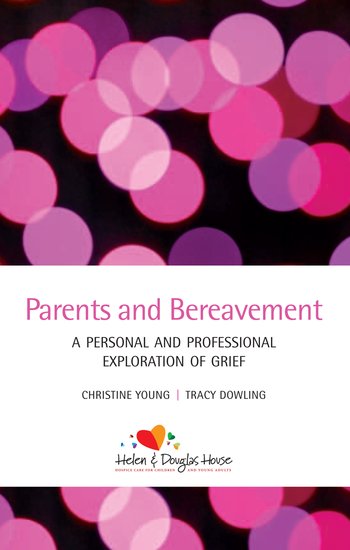By Christine Young and Tracy Dowling
For most of us the death of a child is unimaginable and when it happens to someone close to us, or in our community, we may have no idea of how to respond. If you’re a grandparent or close family member you may well be dealing with your own sense of loss as well as thinking about how to support the bereaved family and it’s the latter that people typically struggle with.
If you bring a group of bereaved parents together one certain thread of conversation will be about them feeling unsupported by friends and family. It’s clearly not the case that people do not care, but often they simply do not know what to say or do and there is a worry about making things worse. The starting point in trying to support bereaved parents is that the worst has already happened. There is little you can say or do, which will match the pain they are already experiencing.
You can help them by acknowledging what has happened and talking about their son or daughter, sharing your own memories of them. If you do not feel able to do this in person, send a card or a letter.
Offer practical help and support, but do not make any assumptions about what a grieving Mum or Dad might need. Check out with them whether it would be helpful to provide meals, do the garden, field calls or whatever you feel you can offer, that allows them to save their limited energy for what matters to them.
Similarly make no assumptions about how long the parents might grieve for. It will take longer than you and possibly they anticipate. Avoid the ‘still’ and ‘yet’ kind of questions, as in ‘Are you still visiting the grave every day?’ or ‘Have not you gone back to work yet, or cleared his room yet?’ These kinds of questions suggest that there is a time line for grief, which the parent isn’t quite adhering to and they can sound judgemental.
Expect a testy response to comments such as ‘it’s for the best’. Few bereaved parents would ever agree with you on that and however sensible it seems to you, don’t suggest that another baby will make the parents feel better. Whether or not parents do go on to have another child, no one will ever replace the child who has died and parents will resent the suggestion that another child could ever do that.
If there are surviving siblings you can perhaps help by supporting them, again either emotionally or practically. Many siblings are sensitive to their parents’ grief and will try to protect them from their own sadness or anxieties. A grandparent, aunt or uncle, who has a good relationship with the child, could perhaps be a sounding board for them. Alternatively maybe you could help with homework or driving to school or other activities.
Holidays, birthdays and anniversaries will need especial care. Again do not make any assumptions about how parents may want to mark these days. Check out with the bereaved parents what they want to do on these dates and try to accommodate them as much as possible. They may want family and friends involved on a birthday or anniversary, but equally may want to spend it alone. Whether or not your physical presence is wanted, do not ignore the significant dates and do not ignore the child who has died. The first Christmas after Tom died, Tracy binned every card which didn’t acknowledge him in some way. It’s really important to parents to know that just as they have not forgotten their son or daughter, neither have you. And it’s not just the big events, which may be painful. Watching their son or daughter’s cousins or peers move from primary to secondary school, learn to drive or get married may well reinforce the absence of their own child. What may be a cause for celebration for you, may be bittersweet for bereaved parents.
Try to remember that there is no right or wrong way to grieve and do not judge or tell the bereaved parents how to do it. The most important thing to keep in mind is that no matter how much you may want to, you can’t fix this for them.
What you can do though is simply be there for them and continue to be there as the months go by.
Christine Young has been Associate Director of Grief Support for the Young in Oxfordshire since the beginning of 2011. Prior to that she was Head of Family Support and Bereavement at Helen and Douglas House, the pioneering children and young adult’s hospice.
Tracy Dowling is currently actively involved in peer-to-peer support at Helen and Douglas House and is also a volunteer with The Child Bereavement Charity in some of their training programmes in the capacity of a bereaved parent.
Parents and Bereavement: A Personal and Professional Exploration of Grief (OUP, 2012) brings together latest research and practice from the pioneering children and young adults’ hospice Helen and Douglas House, alongside the personal experience of a parent.
Subscribe to the OUPblog via email or RSS.
Subscribe to only health and medicine articles on the OUPblog via email or RSS.
View more about this book on the ![]()
![]()




Recent Comments
There are currently no comments.